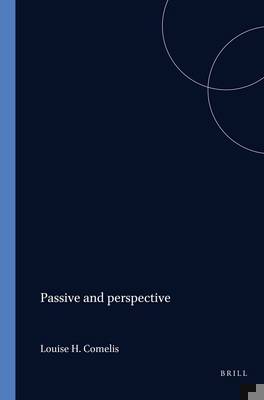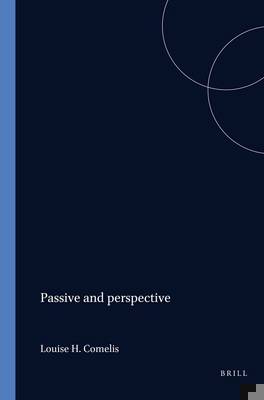
- Afhalen na 1 uur in een winkel met voorraad
- Gratis thuislevering in België vanaf € 30
- Ruim aanbod met 7 miljoen producten
- Afhalen na 1 uur in een winkel met voorraad
- Gratis thuislevering in België vanaf € 30
- Ruim aanbod met 7 miljoen producten
Zoeken
Omschrijving
The passive construction in Dutch represents a long-standing problem both in linguistics and in written communications. This book proposes a new analysis of the passive in Dutch, integrating insights from theoretical (especially cognitive) linguistics and rhetoric/composition. The point of departure is the observation that the Dutch passive has a demonstrable perspective effect in texts: the passive discourages identification with the agent, and this in fact is the meaning of the Dutch passive construction. This meaning forms the basis for a solution to a number of text problems, including the problem of how to best use the passive in computer manuals.
We can also understand the passive's role in specific texts. For example, it becomes clear why policy paper writers use so many passives. Finally, in one of the case studies it is shown why passives were used differently in the NRC Handelsblad, a Rotterdam daily newspaper, and in the Parool, from Amsterdam, when they both reported that Ajax, Amsterdam's football team, became the national soccer champion.
We can also understand the passive's role in specific texts. For example, it becomes clear why policy paper writers use so many passives. Finally, in one of the case studies it is shown why passives were used differently in the NRC Handelsblad, a Rotterdam daily newspaper, and in the Parool, from Amsterdam, when they both reported that Ajax, Amsterdam's football team, became the national soccer champion.
Specificaties
Betrokkenen
- Auteur(s):
- Uitgeverij:
Inhoud
- Aantal bladzijden:
- 296
- Taal:
- Engels
- Reeks:
- Reeksnummer:
- nr. 10
Eigenschappen
- Productcode (EAN):
- 9789042001572
- Verschijningsdatum:
- 1/01/1997
- Uitvoering:
- Paperback
- Formaat:
- Trade paperback (VS)
- Afmetingen:
- 150 mm x 220 mm

Alleen bij Standaard Boekhandel
+ 280 punten op je klantenkaart van Standaard Boekhandel
Beoordelingen
We publiceren alleen reviews die voldoen aan de voorwaarden voor reviews. Bekijk onze voorwaarden voor reviews.








